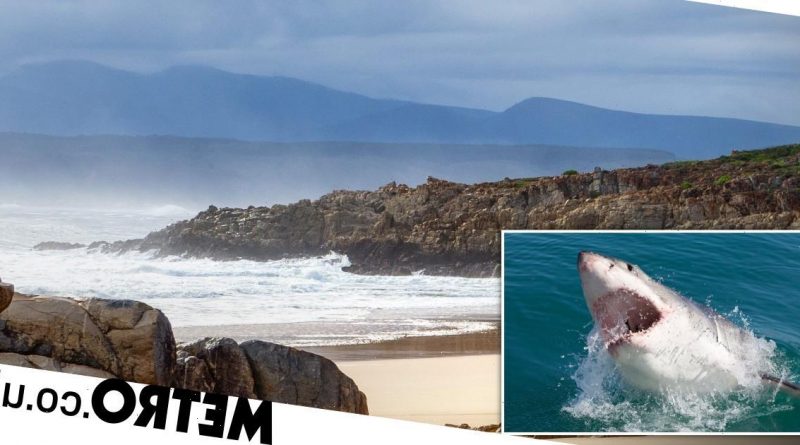Woman killed by Great White shark during early morning swim
A South African woman has been killed by a Great White shark.
Swimmers at Central Beach, Plettenberg Bay had been enjoying an early morning dip today when tragedy struck.
The 39-year-old woman, who had been suddenly attacked, began screaming for help.
Others at the beach attempted to come to her aid but were unable to save her.
The alarm was raised with the National Sea Rescue Institute (NSRI) and a rescue boat was quickly launched.
However, the woman’s body was soon discovered around 50ft from shore.
According to the Mirror, an eye witness told rescuers: ‘It was a bit cloudy but there was some sun out and there were quite a few people taking an early dip as the temperature was quite warm.
‘Then I just heard lots of screaming and saw people running out the water.
‘I guessed it was a shark attack but I was quite a way away and then the lifeboat turned up.
‘I then heard a woman had been attacked while swimming only two or three waves out so it was quite shallow but it was said nothing could be done to help her’.
Following this morning’s incident, holidaymakers were urged to exercise caution in the water by Plettenberg Bay’s beaches.
This is the second fatal shark attack in the area in the last three months.
NSRI spokesperson Craig Lambinon told TimesLive: ’This sadly follows a fatal shark incident at central beach on Sunday morning. NSRI Plettenberg Bay and the police were activated at 7:53am following reports of a shark incident at central beach.
‘The sea rescue craft Eric Stratford was launched. On arrival on the scene the body of what is believed to be 39-year-old female from Cape Town was recovered from the water and brought to the beach.
‘Condolences are conveyed to the family of the deceased female.’
A shark barrier could be created in the water alongside the erection of more warning signs, according to authorities.
Get in touch with our news team by emailing us at [email protected].
For more stories like this, check our news page.
Source: Read Full Article





